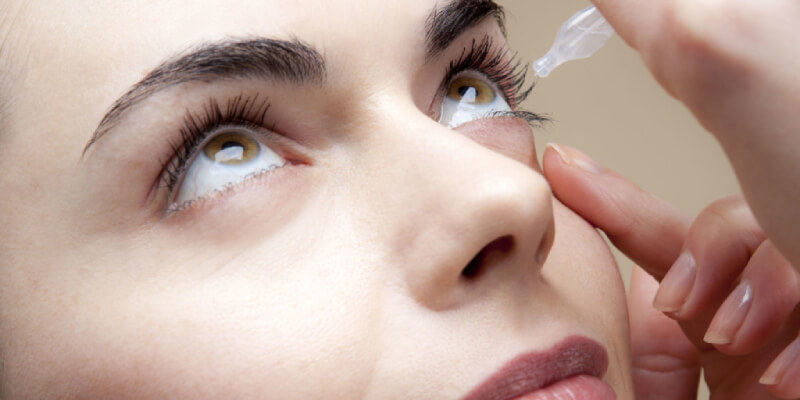Seasonal or year-long eye allergies, or allergic conjunctivitis, can make you see red.
In addition to redness (bloodshot eyes), symptoms of eye allergies include:
- Itching
- Tearing/watery eyes
- Swollen eyes
- Burning
- Blurred vision
- Runny nose
Unless a viral infection develops (pink eye), an eye allergy is not usually serious. But it can be quite uncomfortable.
The AmericanTM Academy of Ophthalmologists cites the following as eye allergy triggers: pollen, grass, weeds, dust, chemicals (such as in smoke, perfume, cosmetics and drugs) and pet dander. You’ll notice that these are the same allergens that cause allergic rhinitis, and the two conditions usually go hand in hand. However, while allergic rhinitis affects the nasal passages, eye allergies, per WebMD, occurs when the thin layer of skin that covers the front of your eyes and the inside of your eyelids becomes irritated.
The most common self-treatment for irritated eyes is eye drops, but over-the-counter drops should only be used for two to three days and you should not use them with contacts. The type of drops you use depends on your symptoms and include:
Antihistamines: Good for watery, itchy eyes, these drops work quickly, but only for a short time.
Nonsteroid anti-inflammatories: Used to treat itchy eyes, these drops can cause burning when first applied and are only effective for about an hour.
Corticosteroid anti-inflammatories: Although helpful for severe or long-term issues, these drops can have serious side effects including cataracts, eye infections, glaucoma and increased pressure in the eye.
Decongestants: Otherwise known as vasoconstrictors, these drops reduce the redness in the whites of your eyes. They are not recommended for treating allergies, and when used long-term, can actually intensify redness and swelling. Also, people with glaucoma should never use decongestant eye drops.
Mast Cell Stabilizers: These drops work like antihistamines by blocking histamine as well as other substances that your body produces during an allergy attack. They are known to be effective without side effects, however work to prevent the reaction rather than treat it.
Multi-action: These are multi-ingredient drops that come in two formulas: antihistamine/decongestant that help alleviate itching, tearing, and redness and antihistamine/mast cell stabilizer that affect all of the above plus burning.
On the other hand, if you rather avoid any type of medication, you can help alleviate allergens by constantly cleaning to eliminate dust mites and pet dander, using a humidifier, or staying indoors.
Or you can make an appointment with CT Sinus Center to see how we can put an end to your allergy suffering. Through our patient-centered approach, our expert physicians will complete thorough and specific skin testing to determine exactly what is causing your allergic reactions. Then our allergy team will develop an individualized and effective treatment plan, whether it includes medication, a small life adjustment (as your allergic reaction could be caused by a pollutant in your environment), or a simple procedure such as balloon sinus dilation or turbinate reduction that will get you back to feeling – and seeing – permanently better in as little as one day.
When it comes to allergies, don’t turn a blind eye. Call (860) BALLOON to make an appointment at one of our conveniently-located offices today.
For more information on all things sinus- and allergy-related, visit the CT Sinus Center website and blog.



